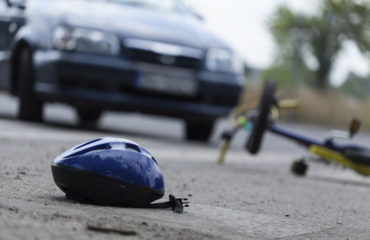Since 2004 it has been against the law for drivers in the United Kingdom to use mobile phones for calls or text messages if they are not using a hands free device[1]. Similar laws are being implemented across the globe.
The UK law followed many years of campaigning by those who argued that using phones meant that drivers were not in complete control of the vehicle when behind the wheel.
Dangerous Driving
But it’s a little known fact that there are plenty of other actions that drivers undertake just as dangerous and just as illegal in the UK.
“Section 41D of the Road Traffic Act 1988 covers breach of requirements as to control of a vehicle,” explains top motor defense solicitor and senior partner at Caddick Davies, Neil Davies.
“This offense is separate to that of using a mobile phone but is also very similar. The theme being one of road safety and that persons who do things similar to using a mobile phone are distracted from what they should be doing – which is driving,” he says.
“The offense attracts 3 penalty points and a fine of up to a maximum of £1,000, but it should also be noted that in some cases it could be considered that the distracting action makes the driving dangerous, such that a far more serious charge of Dangerous Driving which carries a penalty of imprisonment is being committed.[2]”
Multi-Tasking is Distracted Driving
Multi-tasking while driving is also called Distracted Driving. It is driving with either the mind focused on another task, the eyes not on the road, or the hands not on the steering wheel.
What we know from the science is that multi-tasking is a myth.[3] As humans, our brain can only handle one activity at a time; it is not even possible to train your brain to multi-task. When we try to do multiple tasks, our brain is really switching back and forth between the tasks and thus not giving its full attention to any one action. This includes talking on the phone.
Have you ever been talking to someone who is on the phone and driving? You can tell when the person on the phone is not fully engaged in the phone call, you get short answers like “un huh” or “mmmm.” When you point out that the person is not paying attention, the brain then switches over to the phone call and not the driving.
Not In Control of the Vehicle
So what else could be constituted as “not being in control of the vehicle?”
Eating: You know how it is. You’re late for work, you’ve not had time for breakfast, so you grab a piece of toast to eat on the morning drive into work. All perfectly understandable behavior, but what is the difference between having a piece of toast or an apple in your hand and a mobile phone?
Drinking: Obviously we aren’t talking alcohol here. But a quick swig from a bottle of water or can of cola can be fatal if you take your eyes off the road for a split second.
Applying Make-up or Shaving: Another time-saving, yet incredibly dangerous ploy to save time in the mornings, is putting on makeup or shaving when driving. The danger of doing this when you are behind the wheel of a car is that, not only are you not in control of the vehicle, you’re also spending more time looking in the mirror and not concentrating on the road ahead of you.
Adjusting the radio: For as long as radios have been in cars there has always been the temptation for drivers to change stations while driving. But with the advent of CD players, digital radios and even DVD machines, the potential for distraction is even greater.
Reading a map/sat nav: If nothing else, the popularity of satellite navigation systems has reduced the need for drivers to run the risk of driving with an A to Z spread across their lap. Even so, spending too much time inputting postal codes or changing your preferences can be just as dangerous and illegal if you are not considered to be in control of your vehicle.
Time to Focus on the Driving
All of these activities increase your risk to an already complicated and dangerous task, driving. They can result in you not being in control of your vehicle. Many of these activities are done to save time. But is the increased risk or few minutes saved worth a ticket or jail? Is the increased risk worth injuring yourself or someone else? Is the time saved worth causing someone’s death? Now is the time to focus on driving and getting to your destination safely. Now is the time to just drive.
What activity will you stop doing to no longer be a distracted driver? Let me know in the comments below.
Footnotes:
[1] A recent research study by the AAA Foundation for Traffic Safety indicated that hands-free texting might be very dangerous because of its increase of a mental distraction. Of the systems tested, Apple’s Siri was found to have the greatest level of cognitive distraction.
[2] NOTE: While the law does allow for voice activated texts and calls, it still could be very distracting and if the person is not entirely in control of the vehicle it is possible he or she could face charges.
[3] See Also Highway to Safety Podcast #18 – Driving and Cell Phones: The Grand Illusion; Traffic Safety Guy Blog post: Driving and Cell Phones: Multi-Tasking and Other Myths








